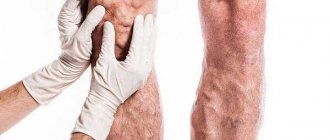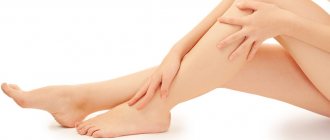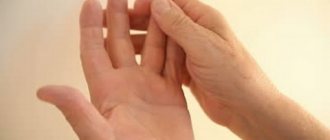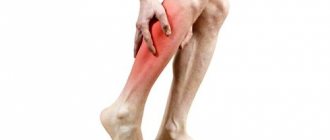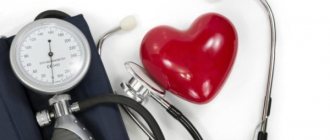Heartbeat in the ears is an unpleasant clinical symptom that may indicate problems with the health of the spinal column. Most often in young people, such manifestations indicate that there is a degenerative dystrophic lesion of the cartilaginous tissues of the cervical spine. As a result, the hemodynamics of the blood vessels that provide nutrition to the cerebral structures changes.
We invite you to familiarize yourself with the basic information on this issue. The article talks about the potential causes of tinnitus, methods of diagnosis and treatment.
Let's start with questions of anatomy and physiology. The human ear has a very complex structure. In addition to conducting and analyzing sound waves, it also has the functions of the vestibular apparatus, which is responsible for the balance of the body when walking and standing. Large blood vessels pass near the ear, supplying blood to the brain. If blood flow is obstructed, a clearly audible noise may occur. The sound of a heartbeat usually appears in healthy people in the event of a sharp expansion of the bloodstream. This condition can also be a precursor to hypertensive crisis, heat stroke, fainting, etc.
The blood supply to the ear, auditory and vestibular apparatus is provided by the posterior vertebral arteries. They also supply blood to the auditory nerve and the apparatus for analyzing sound waves located in the posterior parts of the brain. If the blood supply is disrupted, a person may experience dizziness, headaches, hearing impairment, and a feeling of stuffiness in the ears. Auditory hallucinations and effects are very common. One of them is the beating of the heart. But its distinctive feature is that the people around the patient do not record this sound. It is phantom or hallucinatory in the vast majority of cases.
The posterior vertebral arteries pass in the canal formed by the uncovertebral processes. They are located on the sides of the vertebral bodies and are connected by joints. Two branches of the subclavian artery emerge from the thoracic cavity in the area of 6-7 cervical vertebrae. They enter the uncovertebral canal (each on its own side) and go to the foramen ovale of the occipital bone. There they pass inside the skull and branch out to supply the posterior parts of the brain with arterial blood.
When the cartilage tissue of the intervertebral discs is destroyed, a decrease in their height is observed. In this case, problems arise such as instability of the position of the vertebral bodies, their periodic displacement, and degeneration of the uncovertebral joints. The internal canal in which the vertebral artery is located narrows, bends, and prevents normal blood flow. This may cause a feeling of strong pulsation in the ear on the affected side.
Pulsating sounds in the ears in people under the age of 45 in 90% of cases are associated with degenerative dystrophic disease of the spinal column (osteochondrosis). After reaching the age of 45 years, the proportion of pathologies associated with damage to the inner wall of cerebral blood vessels by cholesterol plaques (atherosclerosis) begins to increase. However, both diseases are potentially dangerous to human health and life. Posterior vertebral artery syndrome with osteochondrosis quite often provokes the development of transient cerebrovascular accident. This can cause a full-blown ischemic stroke with subsequent paralysis of the human body. This condition is equivalent to that which occurs in old age against the background of atherosclerosis of the cerebral vessels.
If you or your loved ones have a feeling of heart pounding in your ears, then do not put off visiting a doctor. It is necessary to conduct a full examination and treatment as quickly as possible. If you have pain in the neck and collar area, you feel muscle tension here, then most likely your problems are associated with damage to the spinal column. In such situations, it is important to consult a vertebrologist or neurologist. They have the necessary professional competence to make an accurate diagnosis and prescribe effective, safe treatment.
In Moscow, you can make a free appointment with a vertebrologist and neurologist at our manual therapy clinic. During the consultation, the doctor will conduct an examination and identify the potential cause of the unpleasant sound in the ears. If this condition is associated with damage to the spinal column and surrounding soft tissues, then individual recommendations for treatment will be given.
Causes
Certain diseases of the body and some consequences of life activities can cause pulsating noise in the ear.
Hypertension
The narrowing of blood vessels and, as a result, an increase in blood pressure initially causes blood pulsation, which the hearing organs perceive as a knocking sound. If, in addition to extraneous noise in the ears, hypertension is also observed, this is a reason to seek help from a doctor.
Inflammatory processes
Pulsation in the left or right ear can often be caused by inflammatory processes that occur within the organ itself. You can talk about otitis media if the pain is accompanied by:
- increased temperature ;
- release of fluid;
- impairment .
In turn, otitis media can be provoked by:
- ARVI or other infection;
- insufficient hygiene of the ear canal;
- decrease in the protective properties of the immune system.
Otitis makes itself felt with pronounced symptoms.
Atherosclerosis
The clinical picture of a largely hereditary disease is the formation of plaques inside the blood vessels. As a result, blood circulation deteriorates, and the turbulence of its movement is reflected as pulsations in the ear.
The situation is aggravated by bad habits and excess weight. As blood flow deteriorates, the brain and the body as a whole suffer. The person begins to experience dizziness and hearing loss.
Osteochondrosis
Pulsating tinnitus, expressed by whistling, knocking, crackling or clicking, can be triggered by the development of osteochondrosis. The deformation of the vertebrae and intervertebral discs characteristic of the disease increases pressure on the blood vessels of the cervical spine. As a result, blood transport to the middle and inner ear, as well as the brain, deteriorates.
Why can our articles be trusted?
We make health information clear, accessible and relevant.
- All articles are checked by practicing doctors.
- We take scientific literature and the latest research as a basis.
- We publish detailed articles that answer all questions.
Pulsating tinnitus is accompanied by deterioration of memory and vision, stiffness in the movements of the cervical vertebrae, and insomnia.
- Noise in the ears and head, causes and treatment. Folk remedies and medications for ear noise
Provokes the development of osteochondrosis:
- slouch;
- metabolic disorders (metabolism);
- weakened neck and back muscles
Tinnitus often occurs at night when trying to sleep.
Stress and physical exhaustion
Excessive emotional stress on the body can result not just in a feeling of pulsation in the ears, but also in “trying on” non-existent diagnoses. Trying to relieve stress, a person begins to listen more carefully to the surrounding sounds, the processes of his own body: he begins to hear the heartbeat, blood pulsation.
Against the backdrop of stress and overwork, the hearing becomes more acute and picks up the irritating ticking of a clock or the dripping of water in a tap, which only makes you feel worse.
Even an absolutely healthy person can suffer from pulsating tinnitus due to frequent stress.
Previous injuries and unilateral diseases
Noise signals to one of the hearing organs can be caused by unilateral diseases of the facial area or head. For example, injuries , sinusitis or inflammation of the lymph nodes. The clinical picture of the listed diseases and mechanical damage often contributes to the conversion of nerve impulses into noise.
Other reasons
In addition to the main reasons listed, the following factors can provoke sound pulsation in the ears:
- age-related changes, according to statistics, 20% of the world’s elderly population complain of ringing in their ears;
- neoplasms in the neck and head area;
- ear plugs, which are formed due to excessive accumulation of wax;
- long-term use of certain medications, in particular aspirin or Gentamitacin, an antibacterial agent whose active ingredients negatively affect the cells of the inner ear;
- frequent use of a headset to listen to music at high volume levels;
- stable flights;
- hormonal changes, which are often observed during pregnancy, during the period of waiting for a child, the water-salt balance is disturbed, which leads to swelling of the mucous membranes of organs.
Only specialists can identify the source of the problem through a thorough examination.
Otitis externa
Most often, inflammation of the outer ear is bacterial in nature.
The causes of infection may be:
- trauma to the external auditory canal, for example, from a sharp or blunt object, or from a hearing aid;
- skin defects due to eczema, psoriasis, diabetes and other diseases;
- too thorough removal of earwax, which creates an acidic environment that prevents the growth of microbes;
- frequent entry of water into the outer ear (“swimmer’s disease”).
Symptoms of external otitis:
- acute ear pain, aggravated by pressing on the tragus or pulling the earlobe;
- possible itching and a feeling of “stuffiness” in the ear;
- discharge of a purulent or bloody nature, sometimes having an unpleasant odor;
- examination reveals swelling and hyperemia of the external auditory canal;
- possible hearing loss;
- enlargement and tenderness of the lymph nodes in the neck and behind the ear on the affected side.
The course of the disease may be complicated by a perforation of the eardrum, which cannot be determined without a visit to an ENT specialist.
External otitis of fungal origin is a common phenomenon, usually occurring in patients with low immune status or due to long-term use of antibacterial drops. It is characterized by severe itching, the formation of crusts, profuse thick discharge and the absence of a therapeutic effect from the use of antibiotics.
Separately, it is worth noting the localization of a boil on the skin of the external auditory canal or inflammation of the atheroma. The clinical picture is similar to otitis externa, but upon examination there is a more localized focus of inflammation with an opening from which pus and blood can be discharged.
Causes of tinnitus and pulse
Ripple in the ears is not a disease, but a symptom that may indicate pathological diseases of the hearing organs or other internal organs. An unpleasant and irritating pounding sensation in the ears. Especially if it hits for a long period of time. In such a situation, it is necessary to examine a doctor who will determine the diagnosis and prescribe treatment. Below is a table indicating the possible causes when you hear a heartbeat in your ears.
- Causes of tinnitus and hearing loss
Specify your pressureMove the sliders 120 to 80
| Cause | Characteristic |
| Violation of blood pressure, problems with cardiovascular system | Decreased elasticity of blood vessels, lack or excess of blood flow to the capillaries of the inner ear. Accompanied by fainting (rarely). |
| Pathologies of the hearing organ | Accompanied by inflammatory processes in one ear or both. A loud noise is heard. If the functioning of at least one organ in the hearing system is disrupted, the sound is distorted and a feeling of pain appears. |
| Mechanical damage to the organ | The intensity of blood flow increases, strong pulsation and pain in the head appear. It appears in the right or left ear, depending on which one is damaged. |
| Presence of a neoplasm or tumor | The pressure of the growing compaction on the vessels or artery gives off a heartbeat in the ears. |
| During pregnancy | Swelling of the mucous membrane of the middle and inner ear. |
Also, the factors that provoke tinnitus are of a physiological nature: hypothermia, poor ear hygiene, chronic fatigue and lack of sleep. Abscess, poisoning, shock and pressure often cause pain in the auricle.
Return to contents
Pressure as one of the reasons
Impaired elasticity of the vascular muscles becomes one of the most common root causes of palpitations in the ear. This often happens with hypertension, when the levels reach 140/90 mmHg. High blood pressure therapy helps to get rid of such unpleasant symptoms. Hypotension (low blood pressure) is a pathology that produces a beating or noise in the ear area. Chronic disruptions in blood pressure indicators lead to disruption of the rhythm of vascular contraction, due to this, the capillaries of the inner ear are either overflowing with incoming blood (at high pressure), or they suffer from a lack of blood (at low pressure), which causes a feeling of pulsation.
Return to contents
Diseases of the heart and blood vessels
Diagnosed diseases of the heart and blood vessels can also give the patient a pulsation in the ear. It is especially pronounced when lifting weights, tilting the head, or going up/down stairs. In this case, the patient complains of darkening of the eyes, pain in the chest and a suffocation effect occurs. This occurs due to poor circulation. Also, the bending of the artery near the hearing organ causes blood to beat against the walls of the vessel. The presence of atherosclerosis is accompanied by noise in the hearing organ and pain. When the carotid artery or jugular artery is narrowed, blood tries to pass through the shunts with maximum force and an unpleasant symptom appears.
Return to contents
Pathologies of the hearing organs
To preserve your hearing, you need to consult a doctor in time.
Depending on the root cause of the development of the pathology, the patient may describe his condition with the following sensations:
- feeling of fluid flowing in the head;
- noise;
- audibility of sound at high frequencies;
- squeezing of the ear;
- pain;
- pulsation;
- hearing impairment.
If you have such symptoms, you should immediately consult a doctor.
It all depends on the nature of the disease and the clinical picture of the disease, as well as on the physiological characteristics of the patient’s body. Some diseases can cause increased production of earwax, which leads to the appearance of plugs. With otitis media (an inflammatory process in the organ of hearing) and untimely treatment, suppuration may begin due to the impossibility of fluid outflow.
Return to contents
- Why do we hear blood pulsing in our ears?
Other factors
The patient may complain of a pulse in the ears at night due to sleep disturbances and fatigue. Stress negatively affects our body and causes a lot of unpleasant symptoms. Noises in the ear can be a signal of the following diseases: oncology, diabetes, osteochondrosis, hepatitis. Mechanical damage to the ear can create a sensation of pulsation and sound in the organ. The noise can be caused by lying on one of the ears for a long time and squeezing its surface (more often this happens at night). Also, problems with the neck and its muscles can cause hearing problems.
Return to contents
Treatment
Treatment depends on the cause of the noise. If an aneurysm is present, intervention by a neurosurgeon or vascular surgeon is indicated. Surgical treatment is also possible in the presence of a tumor of the inner ear (cholesteatoma).
If there are “general vascular” reasons for a murmur that coincides with the heartbeat, vasoactive drugs (Cavinton, Nicergoline, Cinnarizine, etc.) are indicated. It is acceptable to use antioxidants (Mexidol, Ethoxidol, etc.), nootropic drugs (Phenotropil). Betahistine in the form of hydrochloride (drugs Betaserc, Vestibo, Tagista, etc.) can also be used.
If venous outflow is impaired, you should sleep on a high pillow and follow general recommendations (more details in the article about venous encephalopathy, link above).
The inflammatory process on the part of the ENT organs is stopped by prescribing anti-inflammatory, antimicrobial/antibacterial treatment, and sanitation of chronic foci of infection.
Possible complications
Tinnitus may appear without warning, disappear spontaneously, or become chronic.
In addition to constant pulsation, a person may suffer from stress, sleep problems, anxiety or depression. These conditions can cause further deterioration of the heartbeat. Thus, a person finds himself in a vicious circle.
Therefore, it is important to contact a specialist who will help cope with the problem.
If the cause of tinnitus is a heart condition, if left untreated, the normal functioning of the heart can be affected, leading to serious complications over time, including:
- heart failure;
- heart attack;
- sudden cardiac arrest, death.
Eustachite
Eustachitis is an inflammation of the canal connecting the middle ear to the nasopharynx. The degree of pain varies. Characteristic features are:
- feeling of stuffiness in the ear;
- noise and crackling in the ear, the patient hears his voice as too loud with a weakened perception of extraneous sounds;
- sensation of water pouring into the ear.
In the absence of timely treatment, eustachitis becomes chronic, causing chronic exudative otitis media.
What preventative measures will be required?
To protect yourself from such an unpleasant phenomenon as pulsation in the ear, you need to take the following preventive measures:
- Maintain good ear hygiene.
- Use headphones with caution.
- Organize daily walks.
- Protect your ears from infections.
- From autumn to spring, wear a hat and scarf.
- Protect yourself from drafts and hypothermia.
- Give up bad habits.
Following these recommendations will help you maintain your health.
Inflammation of the inner ear (labyrinthitis)
The labyrinth is an organ of hearing and balance, is richly innervated and includes auditory and kinetic receptors, so its inflammation causes:
- severe ear pain and headaches;
- a sharp decrease in hearing, the appearance of noise, crackling, squeaking in the ear;
- dizziness, nausea, loss of orientation in space, horizontal nystagmus.
Labyrinthitis occurs as a result of the penetration of infection in various ways from different parts and cavities of the body:
- from the middle ear with untreated or advanced otitis media;
- with infected meninges during meningitis;
- with blood for diseases such as syphilis, tuberculosis, herpes;
- damage to the temporal region, the organ of hearing with disruption of the integrity of cells and blood vessels.
The disease requires immediate medical attention.
Diagnostics
The diagnosis and treatment of pathologies associated with this symptom is carried out by an ENT doctor (otorhinolaryngologist) or an audiologist (a narrower specialty in otorhinolaryngology). During the appointment, the specialist talks with the patient, examines him, conducts the necessary examination, and establishes a diagnosis.
The multidisciplinary CELT clinic employs experienced, highly qualified otolaryngologists. Rich clinical experience helps them make the correct diagnosis in the most difficult cases.


